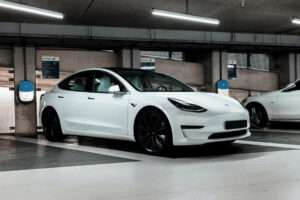
Home / EV Charging News / Electric Cars and the Second-Hand Market: Discussing the emerging market for used electric vehicles, including factors such as battery life, depreciation rates, and consumer perceptions
Electric vehicles have gained significant traction in recent years, thanks to their environmental benefits and technological advancements. As more people switch to EVs, the second-hand market has become an important aspect of the electric car industry. This article aims to provide insights into the emerging market for used electric vehicles.
The increasing awareness of climate change and the need for sustainable transportation has driven the rise of electric vehicles. EVs offer lower emissions and reduced reliance on fossil fuels, making them an attractive choice for environmentally conscious individuals. Additionally, advancements in battery technology have improved their range and charging capabilities, addressing concerns about limited driving distances.
As the first wave of electric car owners begins to upgrade to newer models, the second-hand market for electric vehicles is experiencing significant growth. This presents an opportunity for prospective buyers to enter the EV market at a more affordable price point. However, before you make a purchase, you need to pay attention to several factors.
One of the primary concerns when buying a used electric car is the battery life. Batteries degrade over time, resulting in reduced driving range. It’s essential to understand the battery’s health and the remaining capacity it offers. Factors such as charging patterns, temperature exposure, and maintenance can influence the overall lifespan of the battery.
Depreciation rates play a crucial role in the second-hand market. Electric cars, like their conventional counterparts, experience depreciation, but at varying rates. Factors such as the model, brand reputation, technological advancements, and market demand impact the resale value of used electric vehicles. It’s advisable to research and compare depreciation rates to make an informed decision.
Consumer perceptions of electric vehicles also affect the second-hand market. Some potential buyers may have concerns about the reliability and performance of used electric cars. Educating consumers about the benefits of EVs and addressing common misconceptions can boost confidence and encourage more people to consider buying used electric vehicles.
Government incentives and policies play a significant role in shaping the second-hand electric car market. Financial incentives, such as tax credits or subsidies, can make used electric cars more affordable and attractive. Additionally, supportive policies that promote EV adoption, such as expanding charging infrastructure, can positively impact the market.
Compared to traditional combustion engine vehicles, electric cars have lower maintenance and service costs. However, buyers should still consider these factors when purchasing a used electric vehicle. Understanding the service history, warranty coverage, and availability of spare parts is essential for a seamless ownership experience.
Charging infrastructure and range anxiety are common concerns associated with electric vehicles. Prospective buyers need to assess the availability of charging stations in their area and consider their daily driving needs. The growth of charging networks and the increased range of newer electric cars have alleviated these concerns to some extent.
When purchasing a used electric car, it’s crucial to understand the warranty coverage and the support provided by the manufacturer. Knowing the duration and terms of the warranty can provide peace of mind, as any potential issues may be covered under warranty. Additionally, researching the availability of authorized service centers is advisable.
Both traditional dealerships and online platforms play a significant role in the second-hand electric car market. Dealerships provide the advantage of physical inspections, test drives, and personalized assistance. On the other hand, online platforms offer a wider selection, convenience, and often competitive pricing. Buyers should consider their preferences and explore both options.
As electric vehicles become more mainstream, the second-hand market will continue to grow and evolve. Advancements in battery technology, increased consumer acceptance, and supportive policies are expected to drive the demand for used electric vehicles. The market will likely become more diverse, offering a wider range of options for buyers.
The emerging market for used electric vehicles presents an exciting opportunity for environmentally conscious individuals and those seeking cost-effective transportation options. By considering factors such as battery life, depreciation rates, and consumer perceptions, buyers can make informed decisions. As the second-hand market expands, it is essential to stay updated with the latest trends and developments.



